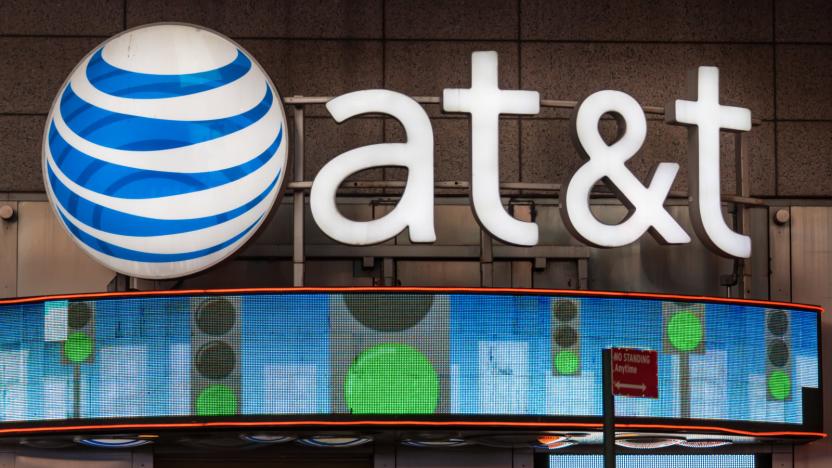commoncarrier
Latest

Court tosses federal lawsuit over AT&T's data throttling
The FCC may be having some success hauling AT&T out on the carpet for throttling unlimited data plans without clear warnings to customers, but the FTC isn't so lucky. A Ninth Circuit appeals court has tossed out the FTC's lawsuit against AT&T over allegedly failing to properly disclose slowdowns to customers. While a district court had ruled that the supposed violations didn't occur when AT&T's service was covered by common carrier exemptions from rules on deceptive and unfair practices, the Ninth Circuit sees things differently. It believes that AT&T's exemption is based on its inherent status as a common carrier, not its activities, and thus that exemptions let the provider say as little as it did about throttling.

Judge says AT&T can't stop FTC lawsuit over data throttling
AT&T's attempt to turn the tables on the Federal Trade Commission's mobile data throttling lawsuit hasn't exactly worked out as planned. A federal judge has rejected the carrier's claims that it can't be sued because its status as a common carrier for voice, which exempts it from FTC oversight, also applies to data. This exception only applies to the services that they're meant to cover, according to the court -- while the Federal Communications Commission's upcoming net neutrality rules will factor in mobile data, they aren't in effect right now. The judge also says AT&T misrepresented the whole point of the rule. It's intended to prevent overlap between common carrier regulations, not (as the network suggested) regulations as a whole. In short, AT&T will have to deal with the consequences of limiting its unlimited data customers, whether that's a slap on the wrist or a serious change in policy. [Image credit: AP Photo/Mark Lennihan]

Google says it's now blocking 'fewer than 100' numbers in Google Voice
The crux of AT&T's recent complaint to the FCC regarding Google Voice was that Google -- not being subject to the common carrier rules that help facilitate fair, open telephone networks -- was blocking customers from accessing numbers managed by rural carriers that charged higher connection fees, thereby giving it a leg up on its Old Guard competition by saving cash in ways AT&T and others are legally barred from doing. Google's hitting back today, not by agreeing to submit to common carrier rules (come on now, don't be ridiculous) but by saying in a statement to the FCC that it's now blocking calls to "fewer than 100" numbers in total now that it has finished implementing new back-end capabilities that allow it to single out specific numbers rather than entire exchanges. Google complains that calls to the top ten exchanges accounted for 26 percent of its entire connection fee outlay -- but yeah, that's pretty much what telcos have been dealing with since time immemorial, so the bellyaching's likely to fall on a lot of deaf ears. For what it's worth, the company is still asking the FCC to make sweeping changes to connection fee policy, but whether this ends up getting them out of AT&T's more immediate concerns remains to be seen. [Via Phone Scoop]

AT&T, Google trade barbs over Google Voice while FCC listens in
AT&T filed a scathing letter with the FCC earlier today complaining that Google's exhibiting a blatant double standard with Google Voice by blocking customers' access to numbers hosted by carriers that charge higher interconnect fees -- something that's specifically forbidden for traditional telephone carriers under so-called common carrier laws. The argument essentially revolves around the fact that Google's move helps it compete unfairly against AT&T and others by arbitrarily blocking calls to numbers that'd cost it too much to connect, which AT&T says puts Google in an "intellectual contradiction" given its "noisome trumpeting" (ouch!) of support for net neutrality. It is pretty interesting that Google wants a free, open internet with the left hand while it's blocking certain telephone calls with the other, but Mountain View wasted no time in responding to the communication, posting an quick blog piece where it says there are "many significant differences" that should exempt it from common carrier legislation (some sound reasonable, though the argument that "Google Voice is currently invitation-only, serving a limited number of users" makes us think they're digging pretty deep to come up with reasons they shouldn't have to pony up the cash to get these calls connected). If there's a bright side to the bickering, it's that both AT&T and Google can agree on one thing: rural carriers' continued ability to charge high connection fees hurts everyone -- it's a "badly flawed" system, in Google's words, and it'd be great if the FCC would do something about it. Whether this whole spat ultimately influenced the outcome of the Google Voice iPhone app debacle is unclear, but it's obvious that AT&T's been stewing about this for a while -- so let it all out, guys, mommy FCC's here for you, and one way or another we suspect GV's going to have to end up going legit if it wants to grow its user base by any significant measure. Check out the gallery for AT&T's letter and follow the read link for Google's shorter, slightly less aggressive response.
